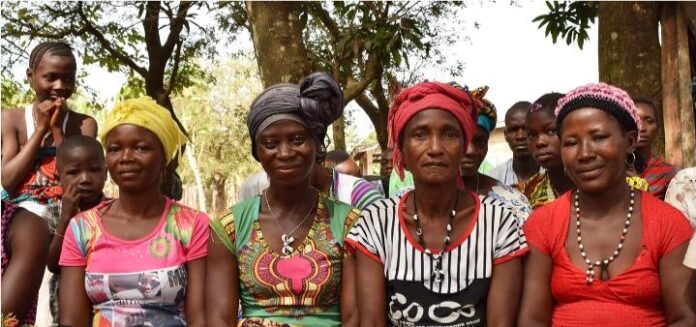By The Prowess
Women’s health in Sierra Leone faces a triple challenge: limited access to quality healthcare, restricted autonomy in making health decisions, and low awareness of health rights and services. These challenges are deeply rooted in structural barriers such as poverty, inadequate health infrastructure, gender inequality, and entrenched cultural norms. Although some interventions by the government and NGOs exist, they often fall short, particularly in reaching rural and vulnerable populations.
In a country where maternal mortality remains among the highest in the world, healthcare is not just a matter of survival for many women, it is a daily struggle for dignity, autonomy, and equal access. Addressing these pressing issues requires a rights-based approach that centres reproductive health, expands education, and empowers women. Only then can Sierra Leone move toward a more equitable and informed healthcare system that truly serves all women.
Despite efforts by the government and international partners to improve health services, women, particularly in rural and low-income communities, still face enormous barriers to receiving the care they need. These challenges extend far beyond hospitals and clinics; they are rooted in poverty, tradition, gender inequality, and systemic neglect.
Health access in Sierra Leone is still a tale of distance, cost, and quality. For many women in rural districts like Kailahun, Tonkolili, and Pujehun, the nearest health facility is often miles away—sometimes a day’s walk. Ambulances are scarce, and public transport is unreliable.
“My sister gave birth on the way to the hospital,” says Fatu Kamara, a community leader in Kono. “There was no nurse at the health post, and no way to reach a doctor.”
Even where health centres exist, shortages of drugs, equipment, and trained staff undermine service delivery. Women frequently wait hours, sometimes days for attention. Many resort to traditional birth attendants or informal providers out of desperation.
And although maternal and child healthcare is technically free under the Free Health Care Initiative, hidden costs—such as medicines, gloves, or unofficial fees, still keep it out of reach for many.
Another silent barrier is the lack of autonomy women have over their own health decisions. Deep-rooted cultural norms and patriarchal family structures mean that women often need permission from husbands, in-laws, or community elders to seek care, use contraception, or undergo surgery.
“Some men believe family planning is a threat to their authority,” says nurse Mariama Sillah in Bo. “We’ve seen women secretly come for contraceptives and later get beaten.”
Early marriage and teenage pregnancy, both common, further compound the problem. Girls as young as 14 are forced to drop out of school to become mothers, often without any understanding of reproductive health. Their consent is neither sought nor considered.
Even when medical procedures are required—such as emergency caesareans, delays occur because families insist on consulting male relatives first, risking the lives of both mother and child.
Health awareness remains low, especially in rural and underserved communities. Many women lack basic knowledge about their reproductive systems, nutrition, hygiene, menstrual health, or disease prevention.
This information gap contributes to poor health outcomes, including high rates of sexually transmitted infections (STIs), unsafe abortions, and undiagnosed illnesses such as cervical and breast cancer.
“I didn’t know what was happening to my body,” shares Aminata, a cervical cancer survivor. “By the time I saw a doctor, it was almost too late.”
Efforts to improve awareness have been made through radio programs, outreach campaigns, and school clubs, but these initiatives are often short-term and poorly funded. Myths and misinformation still spread faster than accurate, life-saving knowledge.
Despite the challenges, a growing network of female healthcare workers, advocates, and grassroots organizations is pushing for change. Groups like Health Alert, Wellbody Alliance, and Marie Stopes Sierra Leone are providing reproductive services, education, and legal support across the country.
Community health workers, many of them women, are playing a crucial role in bridging the gap, visiting homes, offering counseling, and challenging harmful norms.
“We teach them that health is their right, not a privilege,” says Adama Sesay, a peer educator in Moyamba.
Improving women’s health in Sierra Leone will require more than building clinics. It demands a revolution in thinking—where access is guaranteed, autonomy is respected, and awareness is widespread.
Laws must be enforced. Investments must be sustained. And most importantly, women must be included not just as patients, but as leaders, decision-makers, and agents of change in the health system.
Because when women are healthy, families thrive. Communities prosper. And nations rise.


